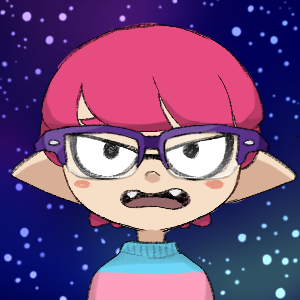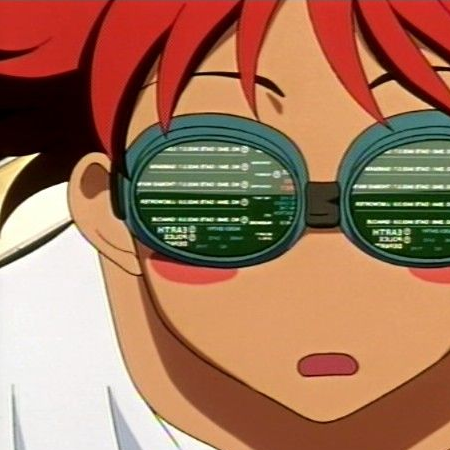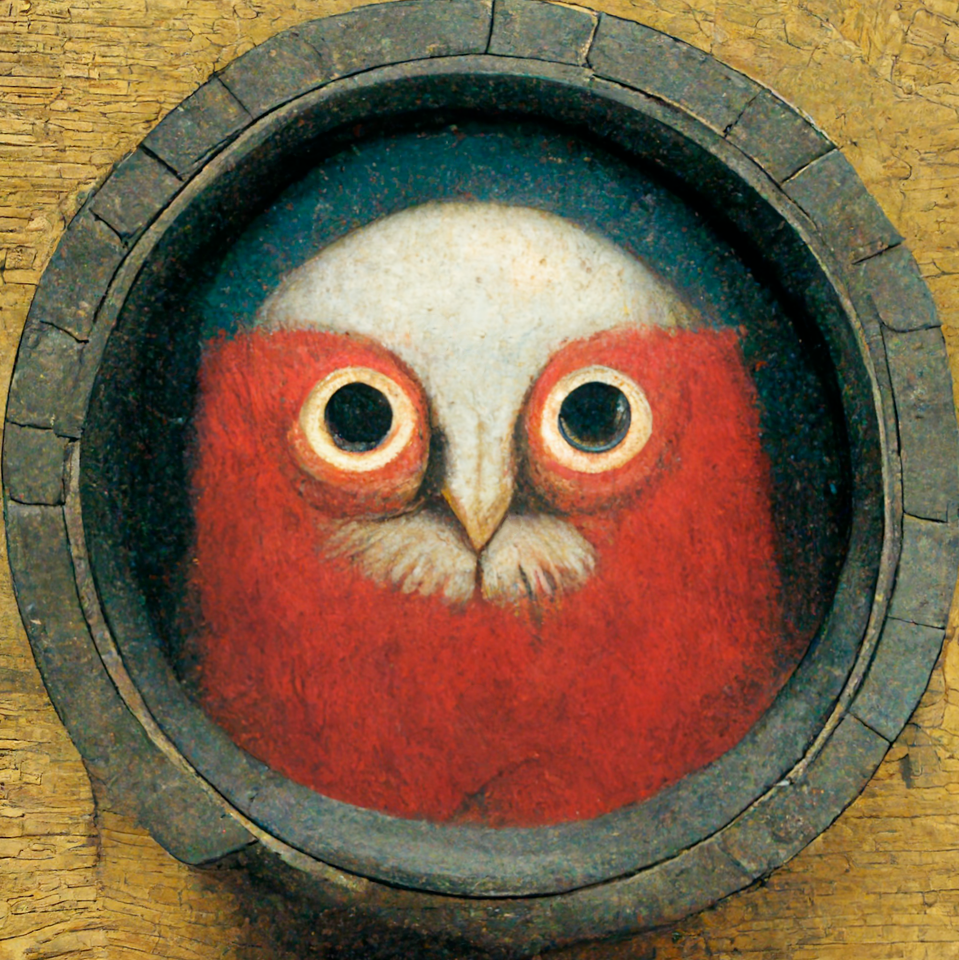This is a weird thought but I’m just curious if anyone else feels this way. I’m 39 and grew up playing games all the way back to the original Atari and I just feel weird about the term “beat” when it comes to finishing games. I don’t know why, but I just feel like it’s weird to say nowadays. I’m talking specifically about story based games, not puzzlers and such. It’s more like playing interactive movies nowadays and saying you beat it feels just …off to me. A game podcast I listen to, they tend to say they “rolled credits” on the game or finished it. I just feel like a lot of games nowadays it’s not about “beating” so much as finishing an experience. I dunno, maybe I’m just weird, but I am curious if it’s just me.

I’m in my 20s and I’ve always said “finished the game”, I agree “beat” feels odd with the way gaming has changed nowadays.
Back then pretty much every game took dedication and skill to finish, so “beat” made sense
Yes, I mean, some people don’t have the time or skill to play on harder difficulties and they just play on the easiest mode to experience the story. Did you truly beat the game if you do that? I’m all about play however you want. I sometimes replay games on easy just because I want to relive the story.

Yeah I get you. And honestly so few games these days have an actual ending anyway. Open world, sandbox, ancillary objective, and multiplayer games have changed the way we look at games in general. I can’t remember the last time I “beat” a game. I mean maybe a few months ago when I finished the main storyline of No Man’s Sky, but did I really beat it? No, I just finished one of the many quests.
Super Mario 64 is a game you beat. Most games today, you just don’t.

Very much feel the same! “Beat the game” made more sense back when it felt like the game was trying to defeat you, whether that was for more quarters in the arcade or for more perceived value at home. But I switched to saying “finished (or completed) the game” a long time ago as the general nature of gaming shifted over the years. For story games with multiple endings, I might say I “finished it” if I don’t plan to go back and see other branches, or “completed it” if I got all endings.
I too am curious if this an age-related tendency or not, I’m in my 40s.
undefined> the game was trying to defeat you
I think this rings true for me most. Story based games nowadays are about experiencing an interactive story. They aren’t trying to challenge you per se. Obviously, they can be challenging to complete, but that’s not the main purpose in my opinion.

The term comes mostly because there is a upper limit(like you get to the last level and then it goes back to level 1), there is last boss from old RPG, you finished all 100 puzzles the designer put in place, etc. So it makes sense to say I beat the game cause there is nothing else the game can provide a challenge.
But modern games like you mentioned, aren’t even designed with this approach. It becomes a wild variety of genre and flavor that you can pretty much do anything you like. ie. I finished GoW:Ragnarok on GMGoW difficulty 100% everything, while there are streamer doing Lv1/no damage runs, and there are people that play story mode and just want to enjoy the lore and story development. All are valid ways to finish the game. And there are even games, say Flight Simulator, how do you “beat” or “finish” that? Or competitive games like Rocket League, CS:GO those just never “finish”, you get “better” and climb the ranks like online chess players.
However, you can still “beat” some games that are designed in more traditional fashion. Say, Resogun is a side scroll arcade shooter, it was traditionally designed so people tries to get better and chase high scores, but if you “beat” it as in finish the arcade mode, there is not much it has to offer than chase high scores. Or games like MetalSlug series, you beat the game cause they don’t have any other challenges to offer.
Most people don’t say “beat” the game now as we know how high the ceiling is that people can do with games(knife only runs, blindfold runs, rockband guitar controllers, etc.), we mostly say we finish the campaign, platinum the game, or 100% complete from the game stats(not every game tracks completion stats).
Yes, this exactly. I feel like we just say beat because we’ve been saying it for so long, but with games like GOW, The Last of Us, Horizon, those are just finishing the story. But I do understand completely why we still say beat. And yes, there are tons of games that are made for beating. That’s why I tried to limit it to more story epics and such.

I have adjusted my mindset instead of adjusting the terms themselves, for me. While completely getting everything that exists was and is still to “100%” a game, I have adjusted “to beat” a game to no longer be nearly synonymous with 100% because I ain’t got time for that anymore.
Instead I believe to have beaten a game if I get the main sequence credit roll and have completed as much non-main scenario content as I want to before I feel it’s tedious or stupid. Sometimes beating the game is strictly completing the main sequence because no extra content exists, are only achievements, or are so difficult that I simply don’t feel like investing the time into it (unless I want to. Shout out to God of War ps3 with the hardest difficulty + Valkyrie Queen side quest! Now THAT was a hard but fair and fun fight!).
I recently played through BotW finally so I can move onto TotK and I did all shrines, about 320 korok seeds, and some side quests and chains (like terry town) but I decided against doing the trial of the sword deep dungeon. I kept playing and doing things and didn’t get all shrines because I wanted to but instead had such a fun time that I got all of them because I just happened to continue enjoying the journey to all shrines. That subtle distinction means I keep playing games as content still exists and while I’m still having a good time.
When the good time ends, then I feel I have beat the game. And that’s good by me.

I would actually have to finish one first, instead of getting bored, switching games, coming back, realizing I have no clue what’s going on, restart the game, get bored, switch games, etc.
The struggle is real, my friend.

Yeah I’m with you. I tend to say I’ve completed the main story/campaign but haven’t finished getting all the collectibles/side quests/100% the game yet. These days I hardly ever hit 100% which I consider would equate to “beating” the game.

The way I see it - does the game have a final boss? Or a difficult climactic ending sequence? A meaningful resolution? Then I did the part that matters, and feel fine saying I beat the game. The side quests and collectible junk usually is just busy work that wouldn’t pose a challenge, I just don’t have the time or interest.

Yeah, this is the distinction I usually make - beating the game is rolling the credits, finishing the story, what have you. Completing the game is doing all the side quests / koroks / enemy camps / content in the game.
Yeah, I guess that’s where my head is at. It doesn’t really bother or offend me in any way. I just can’t help but notice when someone says they beat the game. But that makes sense if you 100% everything. Completing the story feels like just that, you finished a story.

I’ve so used to the terminology though that I’m probably not gonna change it. It’s kind of a weird thing games have though, with movies or books you can just say you watched or read it, and it’s usually implied that you finished it. But that’s not always the case for games, you can play a game but might not ever finish it, or the game might not have an ending. Or it may have multiple endings - does doing one ending count? Or do I have to do all of them? Or is it nier automata, and I have to do 6 of them?
Don’t really have a conclusion to this, just think it’s interesting.

Oh I beat Nier Automata. I got ending W.

Must have been a speedrun!
Imagine beating the Stanley Parable…

I think Stanley Parable in a way is kind of about this idea. In the museum ending the female narrator tells you to stop the game, that if you play the whole thing and get every ending, you’ll only see it as what it is: a series of paths and sequences laid out and planned beforehand. By stopping at one or two endings, you preserve the game’s illusion of free choice.
Ultra Deluxe kind of confirms this idea too. The narrator tries to get back that feeling of playing for the first time, and not knowing what choices are available to you, but ultimately fails.
Don’t really have a conclusion to this, just think it’s interesting.
Definitely, I just find it interesting that we still use that term, even if it doesn’t necessarily apply.

I’ve noticed I usually say now “I completed the story” instead of “I beat the game.” With so many games now continuing even after the story or all the extra things you get through multiple playthroughs, it’s a pretty outdated term now.

No I like the term beat, not because it’s accurate, but because it’s like a tradition, it’s part of the culture of the medium. Beating a game is a triumph, something to celebrate and be proud of, not just checking off a to-do list.
Yeah I get that. I feel like it’s only tradition though because we’ve been using that term since the days where gaming was really about beating it. When I finished The Last of Us, I didn’t feel like I “beat” it. I felt like I completed the story.

In my household beating the game has the same meaning as “rolling credits” - largely based on Backloggery’s distinction between beaten and completed games. I’ve started focusing on actually beating games/rolling credits in the past ~3 years and while there’s still a few games I’ve started and put down unfinished for various reasons, I beat 25 games in 2022 and 14 so far in 2023.
I’d be interested to know what the difference in language means for you - would “beat” apply only to games that don’t have post-credits gameplay?
I’m with you. I feel like it has the same meaning. Really I was just curious others thoughts on the term. I completely understand why we say it still. It just feels weird to me. When I finished GOW or TLOU, I don’t feel like I “beat” it, I feel like I completed an epic story. I don’t really feel like I need to apply different terms. It’s just something that stands out to me when I hear it and I can’t help but think about it.

This resonates. A lot of games nowadays emulate something more like a movie or book and like you said, it’s about finishing the experience. Even something like Hades he gameplay is old school and fairly straight forward, but the sheer amount of recorded dialogue makes for an experience in and of itself.
Along the same lines I grew to care less about 100%ing a game unless it’s a game WORTH doing so.
For sure. I find sandbox games to be the ones I feel like 100%ing, but most story based ones, I just want to experience the story.

There are distinctions, sure, but at no point in MY life has “beating a game” been equated with “100% completion of every piece of available content in a game”.
Going all the way back to the 90s, if you beat Robotnik in Sonic 2, you beat the game, even if you didn’t get all the Chaos Emeralds.
If you beat Bowser in SMW, you beat the game, even if you didn’t finish the secret levels and unlock fall.
In FF7, if you beat One Winged Angel Sephiroth, you beat the game, even if you didn’t do Emerald/Ruby Weapon or breed a Gold Chocobo.
If you beat Majora but didn’t get all the masks you still beat the game.
If you finished Baldur’s Gate 2 and defeated Irenicus you beat the game.
If you beat the Elite 4, you beat Pokemon, even if you didn’t collect all 150.
If you went Act 1-4/5 in Diablo 2 on normal, guess what, you beat the game. You can beat it again on Nightmare, and again on Hell, but you still beat it.Did that change somewhere along the way? I beat Spider-Man. Did I 100% it? No. I beat BotW and ToTK. Did I 100% them? No. I beat God of War 2018. Did I 100% it on the highest difficulty? YES, but I beat it first!

Definitely the case IMO. You can play a game, beat a game, complete a game. Those are all very valid states.

I say finished playing or finished the game, I don’t normally clarify that it doesn’t mean I did everything in the game, people seem to understand that it means that I played the core elements

This is the best way to look at it imo

With modern (non-multiplayer) games it always seems as though there’s a clear “main” chunk of the game. I usually try to complete that bit to feel as though I “beat” the game.
Main chunks are main story, levels, or getting beyond the main obstacle. Sandbox games are a good example of something outside this sphere and with those I simply enjoy the experience and don’t sweat completion.
I find myself playing more sandbox style games as things go due to time and skill commitments which has been an interesting change from when I was younger.
